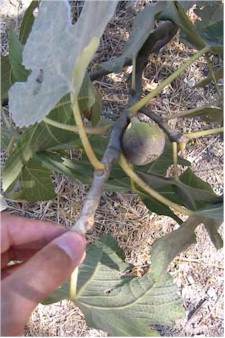We continue to travel through the season of Lent on our way to celebrate the Easter Vigil - the sacred, ancient ritual that enshrines the essential mystery of our faith - passion, death and resurrection of our Lord and Savior, Jesus Christ. In a very brief time, we will have walked the road of salvation history, listening to the words and stories, watching signs and symbols, seeing unfold before us God's plan and promise for human life.
 It is a road that we have traveled personally and privately. To the unbeliever this road leads to an empty tomb, which seems - at first glance - to be a strange and disappointing climax to the story of God's love for us. But the Gospel message is strong and clear: we must not look for the presence and the power of the risen Christ among the dead... we will not find him in the dead pages of a history book - we will not find him in a dead religion, frozen in time and mechanical rituals that have lost their meaning - we will not find him in a culture that idolizes wealth and power and comfort - we will not find him in the dark and empty tomb of our own sinful selfishness.
It is a road that we have traveled personally and privately. To the unbeliever this road leads to an empty tomb, which seems - at first glance - to be a strange and disappointing climax to the story of God's love for us. But the Gospel message is strong and clear: we must not look for the presence and the power of the risen Christ among the dead... we will not find him in the dead pages of a history book - we will not find him in a dead religion, frozen in time and mechanical rituals that have lost their meaning - we will not find him in a culture that idolizes wealth and power and comfort - we will not find him in the dark and empty tomb of our own sinful selfishness.
Jesus never did what folks expected, always frequented the wrong places, stayed with the wrong people, did the most outrageous things, and certainly preached a message that the more "important" people of His time did not want to hear. People called him "rabbi" but He didn't teach with theological treatises - He told strange stories - He never allowed the Law, or tradition, or the "proper thing to do" to take precedence over ministering to His people.
God always invites - He never demands or forces. It is our job to try to understand what God is asking - and then we must make a choice. That is when we come face-to-face to our responsibility as children of God. What He asks may seem at the moment to be impossible, unreasonable, or purposeless. It might involve giving up our comfort, our traditional way of thinking or of doing things, our health, maybe even our life or the life of someone we love. It involves trusting enough to cultivate and fertilize, even when the barren tree seems without life.
If we can bring ourselves to do this, when we freely choose to do what seems unreasonable... then the Lord reveals Himself to us in ways that we could never imagine: we discover how good God is, how tenderly and compassionately He will treat us, and how much He loves us.
On our Lenten Journey, we try to reach out and freely embrace the Cross. In small ways, we test our willingness to die, to obey, to give up something precious, to pay the price of discipleship. But we can only do this if we have first experienced the desert; only if we have seen Christ Transfigured with our own eyes and have come down from the mountain with him; only if we see Him in the lives of those around us: even if we don't meet eye to eye with them, even if our disagreements are deep and painful, even if they believe differently than we. Only if we really believe in the Resurrection.
Lent is a time for patience, repentance, self-examination and discipline. It is the time for self-reflection, evaluation and change-of-heart - for conversion. We need to strip away those things that clutter our lives or hinder our relationship with God. Like the gardener in today's parable, we need to cultivate the message of the Gospel in our lives, remove the weeds that strangle our growth, and fertilize with hope and with faith.
Through that faith, we have a foretaste of the glory of Risen Lord, and we trust that it is this same glory which is waiting for us. Because we believe we will embrace the Life He has promised us - and because of that promise we know that God is near, that He understands our pain, that He will sustain us and carry us through - beyond our Gethsemane, beyond our Calvary, to the triumph of our Easter.




